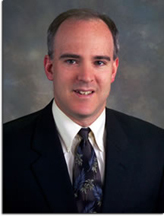
Daniel Philpott, associate professor of political science at the University of Notre Dame, has edited a new book titledThe Politics of Past Evil: Religion, Reconciliation and the Dilemmas of Transitional Justice.
Published by Notre Dame Press, the book explores religions impact on the politics of peace and reconciliation through the views of theologians, philosophers and political scientists.
A lot of societies are becoming democracies after long periods of totalitarianism,Philpott said,while other societies are coming out of civil war into peace.Many theologians have looked at these transitions, but they dont tell us what theology means in the context of politics. Likewise, politicians, journalists and others pay attention to politics, but dont pay much attention to religion. Whether the impact of religion on those transitions is good or bad, it cant be ignored.
In his own essay for the volume, Philpott cites the role of Anglican Archbishop Desmond Tutu in shaping the work of South Africas Truth and Reconciliation Commission, which he chaired in the 1990s. Upon hearing people testify to their misdeeds or their suffering during the apartheid era, Tutu often responded with religious language and ritual, urging them to take the next steps of repentance or forgiveness.He was both praised and criticized for this approach.
A senior associate at the International Center for Religion and Diplomacy and faculty fellow in Notre Dames Kroc Institute for International Peace Studies, Philpott travels regularly to Kashmir, where he trains leaders in faith-based diplomacy. His first book, titledRevolutions in Sovereignty: How Ideas Shaped Modern International Relations,is a historical account of how new ideas about justice and legitimate authority fashioned the global sovereign states system. He also has written on the morality of self-determination and religious freedom as an end of American foreign policy.
Other Notre Dame contributors to the book are Rev. David Burrell, C.S.C., Theodore Hesburgh Professor of Philosophy and Theology and fellow of the Kroc Institute; A. James McAdams, William M. Scholl Professor of International Affairs, fellow of the Kroc Institute and director of the Nanovic Institute for European Studies; and Scott Appleby, professor of history and John M. Regan, Jr. Director of the Kroc Institute.
Contact: Julie Titone, Kroc Institute director of communications, 574-631-8819 or jtitone@nd.edu
TopicID: 17722